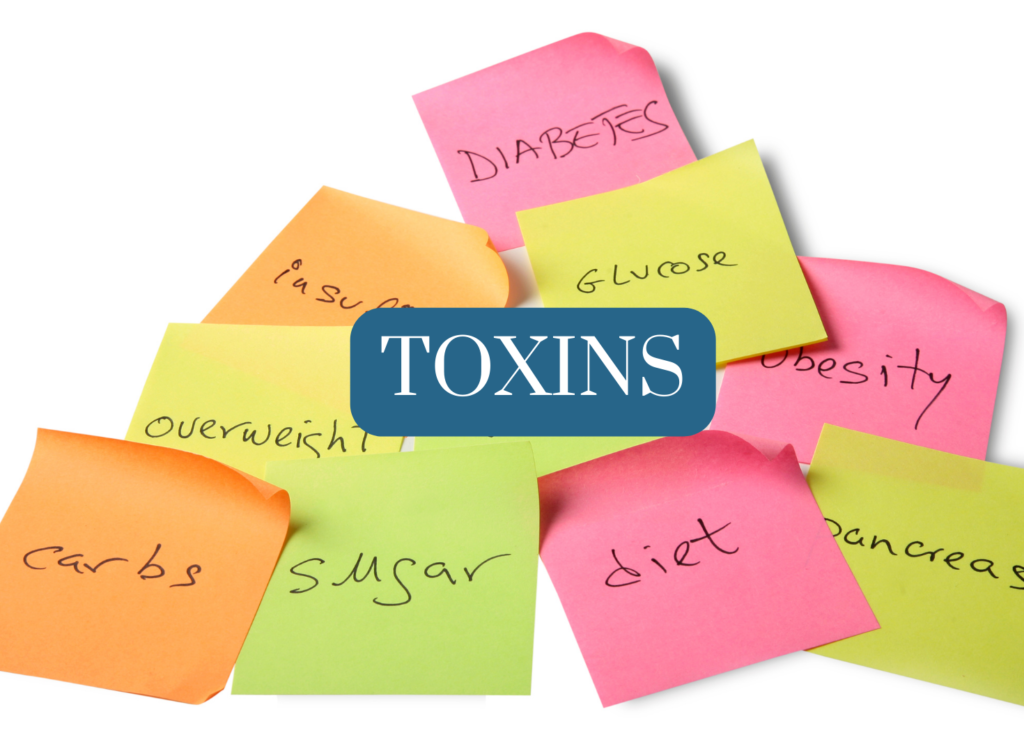

In the ongoing battle against diabetes, the conventional wisdom has often pointed fingers at sugar and high-carb diets as the primary culprits. While it’s undeniable that excessive sugar consumption can contribute to diabetes, a closer look reveals that the majority of diabetes cases in the United States are rooted in inflammation triggered by toxins from both food and the environment. Forget what everyone says—just saying no to sweets and easing up on carbs might not be the magic fix for keeping chronic diseases at bay!
Understanding the link between inflammation and diabetes is crucial in reshaping our approach to health. Inflammation, the body’s natural response to injury or infection, can become chronic when triggered by prolonged exposure to toxins. Toxins, in this context, refer to harmful substances present in the food we eat and the environment we inhabit. This perspective broadens the narrative, highlighting the need for a comprehensive strategy that goes beyond sugar reduction.
It’s important to acknowledge that toxins are, to some extent, inevitable. They lurk in the air we breathe, the water we drink, and the food we consume. However, this doesn’t mean we are powerless in the face of these environmental challenges. There are tangible steps we can take to limit our exposure to toxins, ultimately reducing the risk of chronic diseases like diabetes.
The first step is to be mindful of the food we consume. Opting for organic produce can significantly decrease exposure to pesticides and herbicides, common culprits in the toxic overload that contributes to inflammation. Similarly, choosing clean, unprocessed foods minimizes the intake of artificial additives and preservatives that can wreak havoc on our health.
Environmental toxins extend beyond what’s on our plates. Household products, personal care items, and cleaning supplies often contain harmful chemicals that can contribute to inflammation. Taking the time to read labels and opting for natural alternatives can go a long way in reducing the toxic burden on our bodies.
In addition to being vigilant about what we put in and on our bodies, understanding the role of detoxification is pivotal in promoting longevity and preventing chronic diseases. Detoxification is the body’s natural process of eliminating or neutralizing toxins. However, it’s not a quick fix; rather, it’s a gradual, ongoing process that requires consistent effort.
To enhance the body’s detoxification capabilities, hydration is key. Water acts as a natural flush, helping to rid the body of accumulated toxins through urine and sweat. Staying adequately hydrated supports the kidneys and liver, the primary organs responsible for detoxification.
Regular exercise is another cornerstone of effective detoxification. Physical activity increases blood circulation and promotes the elimination of toxins through sweat. Furthermore, exercise stimulates the lymphatic system, a crucial component of the body’s detoxification process.
Incorporating antioxidant-rich foods into our diets is a proactive measure to combat inflammation and support detoxification. Fruits and vegetables, particularly those with vibrant colors, are packed with antioxidants that help neutralize free radicals – harmful molecules that can contribute to inflammation and chronic diseases.
It’s essential to approach detoxification with patience and a long-term perspective. Quick-fix detox programs may promise rapid results, but the key to sustainable health lies in consistent, gradual efforts. Overloading the body with drastic measures can lead to adverse effects and negate the intended benefits.
While sugar and high-carb diets undoubtedly play a role in the diabetes epidemic, the bigger picture involves inflammation triggered by toxins from various sources. By making informed choices about our food and lifestyle, we can limit our exposure to these toxins and support the body’s natural detoxification processes. Detoxification, when approached gradually and consistently, becomes a powerful tool in promoting longevity and preventing chronic diseases. It’s time to expand our understanding of diabetes prevention beyond the sugar bowl and embrace a holistic approach to health! Got questions? Contact us today!
Get free shipping.
Free Shipping
5% Discount


At home.
Blood and Urine
$179 – $439
Depending on insurance coverage.


This is a comprehensive stool test that relies on quantitative polymerase chain
reaction (qPCR) technology to detect parasites, bacteria, H. pylori, fungi, and more by targeting the specific DNA of the organisms tested. Click here for more information.
At home.
Stool
$399
Depending on insurance coverage.


At home.
Urine
$129
Depending on insurance coverage.


At home.
Swab
$299
Depending on insurance coverage.


At home or in lab.
Blood
$999
Depending on insurance coverage.


At home.
Blood, Urine, or Ticks
may have a $200 copay
Covered by most insurance.


At home.
Urine
$300
Depending on insurance coverage.


At home.
Urine
$199
Depending on insurance coverage.


This test evaluates the genetic profile for multiple health indicators. Click here for more information.
At home
Blood Spot


At Home
Urine
$699
Fully covered by Medicare. Repeat test prices $249


$85-$225 depending on insurance coverage.




This company can test for lyme, babesia, bartonella and additional tick-borne illnesses. Click here for more information.
Blood
around $1600 (depends on panel selected)


This test is designed to look at food sensitivities (IgG immune responses). It is available in both a 99 or 184 panel. Click here for more information.
Blood
$129-238


No insurance coverage


Blood




This test evaluates the gut function and indicates microbiome balance, overgrowth, infection, inflammation, parasites and digestive efficacy. Click here for more information.
$179-$439 depending on insurance coverage.


This test evaluates many measures including micronutrients, antioxidants, minerals, detox, overview of gut function, omegas and toxic exposure. Click here for more information.
At home.
Urine
$150 – $329


Blood work for blood count, urinalysis and vitamin levels.
At any Quest Diagnostics Location
Blood
You often have to fast for these tests-please check your providers notes.




$310